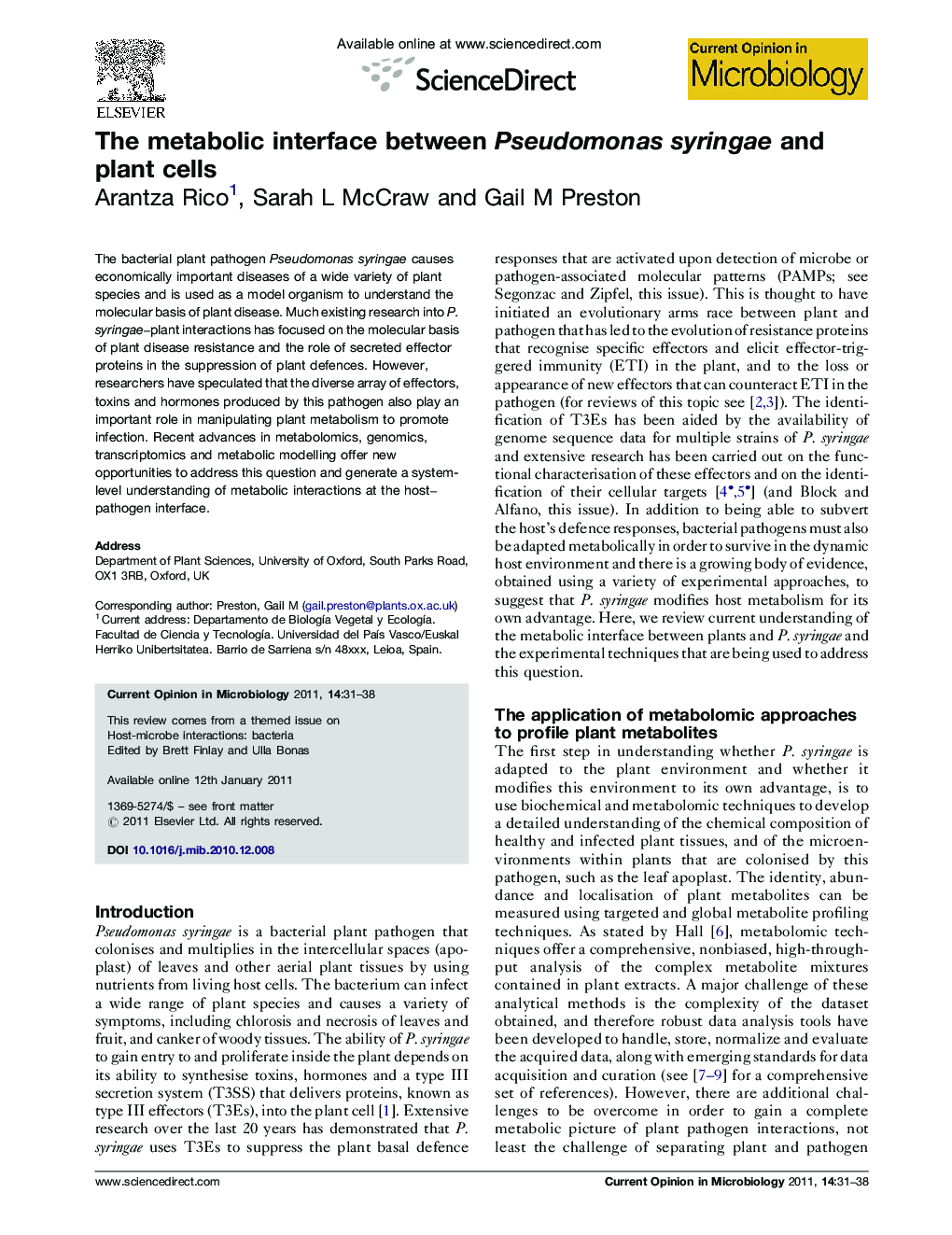| Article ID | Journal | Published Year | Pages | File Type |
|---|---|---|---|---|
| 3399100 | Current Opinion in Microbiology | 2011 | 8 Pages |
The bacterial plant pathogen Pseudomonas syringae causes economically important diseases of a wide variety of plant species and is used as a model organism to understand the molecular basis of plant disease. Much existing research into P. syringae–plant interactions has focused on the molecular basis of plant disease resistance and the role of secreted effector proteins in the suppression of plant defences. However, researchers have speculated that the diverse array of effectors, toxins and hormones produced by this pathogen also play an important role in manipulating plant metabolism to promote infection. Recent advances in metabolomics, genomics, transcriptomics and metabolic modelling offer new opportunities to address this question and generate a system-level understanding of metabolic interactions at the host–pathogen interface.
